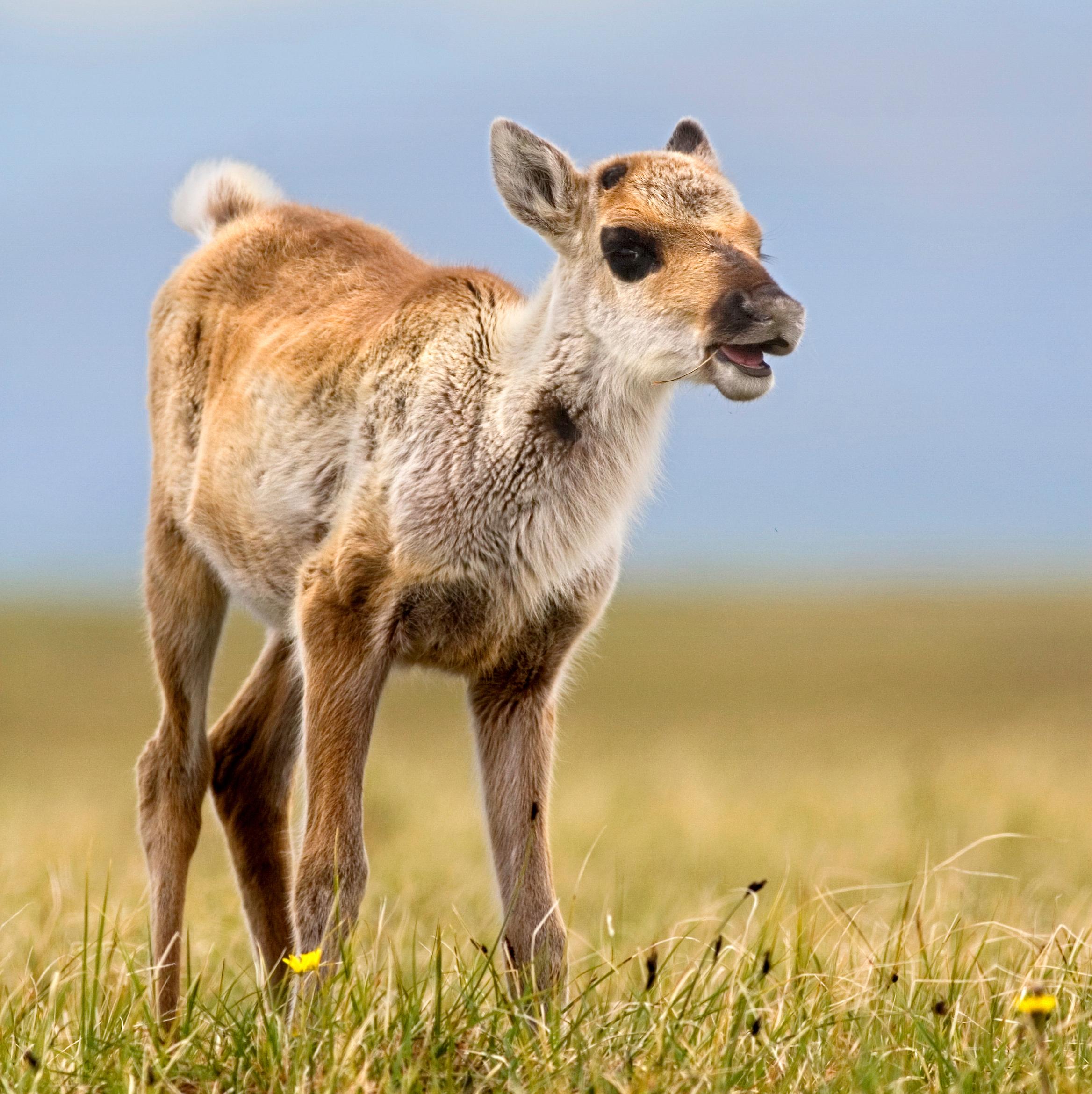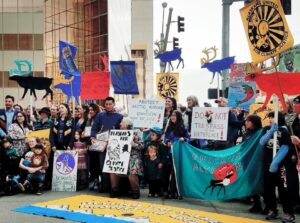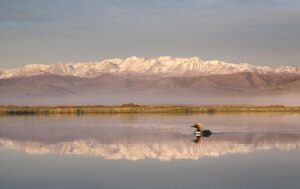
Alaskans rally for the Arctic Refuge
Rally for the Arctic: Help the Gwich’in protect their way of life

Photo by Malkolm Boothroyd.
Last month, hundreds of Alaskans showed up at public hearings to oppose oil and gas leasing in the coastal plain of the Arctic National Wildlife Refuge.
Some of these Alaskans talked about how drilling in the Refuge would imperil the Porcupine caribou herd, the food source and cultural foundation for the Gwich’in people.
Some talked about how drilling would threaten the health of fish and wildlife, water and air, habitat and communities.
Some talked about how Arctic development would make the impacts of our changing climate even worse due to rising seas, melting permafrost, erosion, hurricanes, floods, droughts and other extreme storms.
Some talked about how the web of drilling pipelines, roads, pads, and rigs would disrupt thousands of birds, caribou, and other animals that move through the coastal plain to nurse their young, find refuge from predators, and find food.
These Alaskans agreed that the Arctic Refuge is no place for oil and gas drilling.

Anchorage rally for the Arctic, May 2018. Photo courtesy Defend the Sacred Alaska.
Speak up now and speak up often
You can join these voices by telling our federal agencies and leaders that the Arctic Refuge is a refuge, not an oil field.
Speaking out now will help determine what the Bureau of Land Management considers when preparing an Environmental Impact Statement. It’s important that all Alaskans bring their knowledge, experience and values to the process.
Otherwise, only those who profit decide what’s important.
SUB: The “public” in public process matters
Why are these hearings and public comments important? Because the National Environmental Policy Act requires federal agencies to consider all environmental and social impacts of a proposal before taking action, and because many other laws require the protection of wildlife and ecosystems in the coastal plain.
Input from the public is vital to making sure agencies fully consider potential impacts of leasing and ultimate oil and gas development.

Pacific Loon in the Arctic Refuge. Photo by Malkolm Boothroyd.
Any assessment needs to consider the impacts to community health, habitat, climate change, social systems, wild foods, human rights, indigenous cultures, and much more. Your concerns and perspectives matter.
The hearings are over, but you can still speak up for the Arctic and share your vision for a wild and vibrant Alaska where fish, wildlife and people thrive.
Congress set the tone for silencing debate
Congress set the tone for keeping the public out of the public process when it tacked a controversial rider opening the coastal plain to oil and gas leasing onto the tax bill, with little in the way of transparency, public involvement, or debate. Senator Murkowski and others promised there would be a robust environmental review process and opportunities for meaningful public involvement.
So far, BLM has failed to meet those promises. The agency has stymied robust public input by closing hearings before everyone could speak. It gave hand-selected representatives from industry, Tribal organizations, non-governmental organizations, and elected officials timeslots to comment, but then limited the time given to everyone else.
Many of those who went to hearings did not get a chance to talk publicly, and when they requested more hearings and more time to submit comments, BLM refused.
Alaskans represent many complex views and should get a chance to share their comments with the same visibility and regard as those handpicked to speak.
The agency may not hold more hearings, but you can still speak out. Share your knowledge and story now to protect the Arctic.


